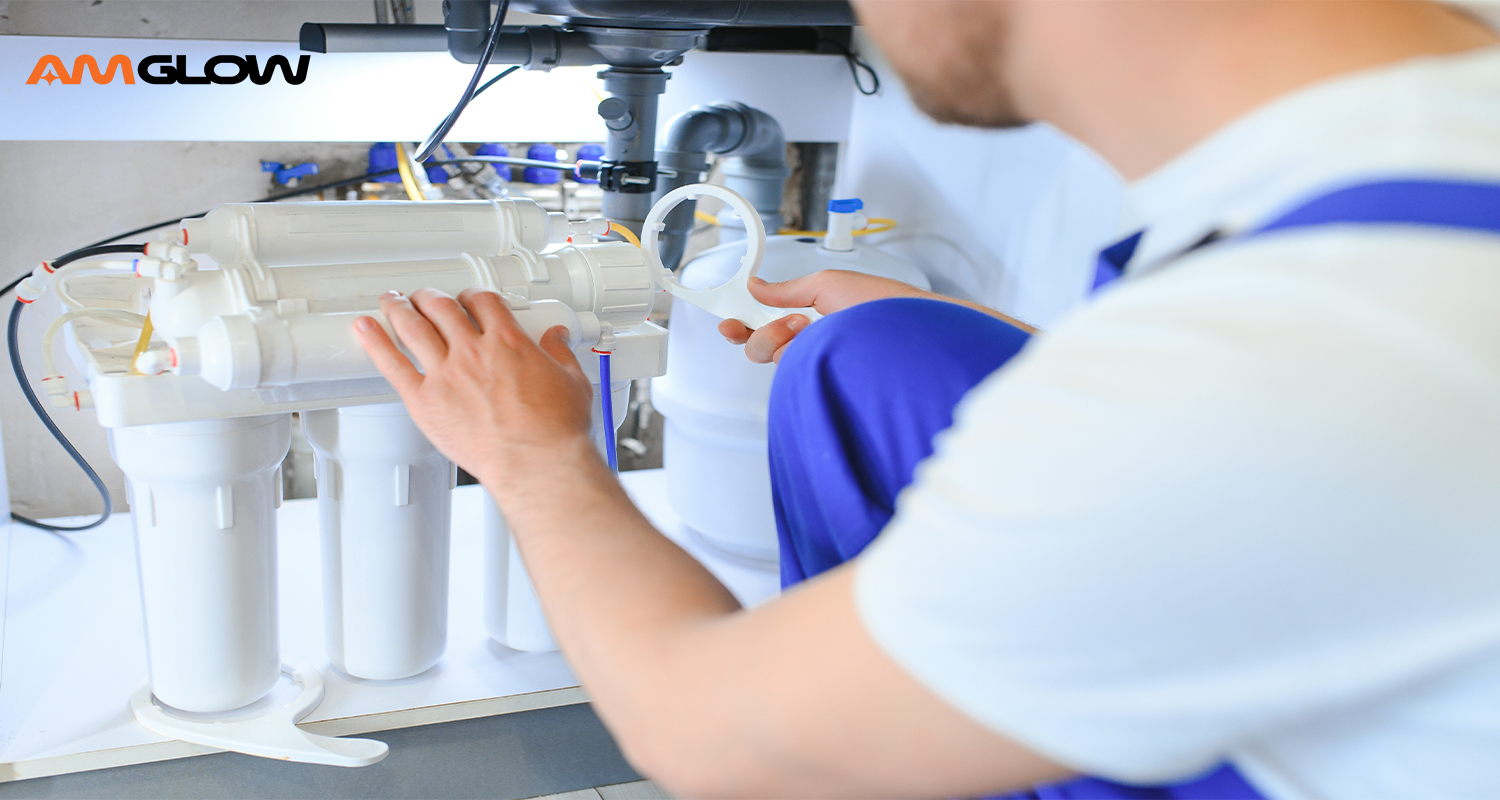Home / Blog / Home Water Filter Systems vs Portable Filters: Which Works Better?
Home Water Filter Systems vs Portable Filters: Which Works Better?

Clean water is a basic need for our daily routines. We use it for drinking, cooking with it, rinsing food in it, and brushing our teeth with it. Safe water does more than quench thirst, it maintains our health and comfort. When choosing a purification method, many consider two primary options: home water filter systems and portable filters. While both aim to cleanse water, they differ significantly in function, size, and flow rate.
This blog clearly outlines these differences. It focuses on how each type performs, how much space it requires, and which tasks it handles best. You won’t need specialised knowledge or hours of research. This guide will help you decide whether a stationary water filter for home or a portable one suits your needs. Let’s discuss what each filter offers, how it operates, and which aligns with your space and water habits.
Size and Setup: Which One Fits Better Where You Live?
A home water filter system usually settles in one place. It connects beneath the sink or anchors on a countertop. Once secured, it begins filtering as soon as the faucet flows. These systems cleanse large amounts of water each day without needing much attention. Portable filters can easily set up where space is limited. They fit into bags or drawers and facilitate you to use them anywhere. They don’t hook into pipes or stay still. Instead, you add water to them, wait, then pour it out clean.
- Home water filters stay fixed and connect directly to the tap.
- Portable filters move easily and clean smaller portions of water.
- Home filters need more space; portable ones demand for more time.
Home filters easily fit into people’s routines. Once installed, they work quietly and consistently. Portable filters are ideal for people who carry their needs with them. They require action with each use, fill, wait, pour. Choose the one that best matches your space and how often you need water throughout the day.
Filtration Power: What Each Filter Removes from Your Water
Home water filter systems usually contain more layers of filtration. Some are normal to filter, others may provide more functions and features. Each layer traps different things, sand, smells, rust, chlorine, or even small particles you can’t see. Some even return healthy minerals to the water after cleaning it. These systems operate all day and handle more water with steadier results. Portable filters, by contrast, handle less and focus more on quick fixes. They usually come with fewer layers and remove only basic particles. While they may freshen taste and trap dirt, they don’t often reach deeper issues like certain chemicals or microscopic bacteria. Their goal is to improve quickly, not to cleanse thoroughly.
- Home filters use layered designs to purify more thoroughly.
- Portable filters focus on removing elemental impurities and tastes.
- Home systems filter more water and reach more contaminants.
A stronger system might make a difference if your water carries more problems or flows from older pipes. However, a portable one may manage if your tap already has relatively clean water, and you only need a touch-up. Think about what hides in your water and how much purity matters to you.
Daily Use and Time: How Much Effort Does It Take?
Water fills our day, from morning to night. A home filter works as soon as the tap turns on. It delivers clean water instantly without asking for extra steps. Some models even provide hot, cold, or room-temperature water without delay, such as Contour 7flo or Contour 7max. These systems stand ready every time you reach for a glass.
Portable filters make you work more. You fetch water, pour it into the filter, and then wait for it to drip. This process repeats with each use. They don’t store much water at once, so you’ll refill more often, especially if more than one person uses them.
- Home filters activate with the tap and require no added steps.
- Portable filters must be filled and allowed to wait before each use.
- Home systems manage large volumes; portable filters work more slowly.
If many people in your space reach for water, or you need fast access for cooking and drinks, home filters deliver without delay. But if you drink now and then, and don’t consider a slower process, portable filters might do enough. Think about how often you drink, and how quickly you need your water ready.
Conclusion
Choosing between a home filter and a portable one depends on your patterns. A water filter system provides strength, ease, and steady performance. It fits nicely in busy homes where clean water is often used. Once installed, it requires almost no further input and works reliably with every turn of the tap. Portable filters offer a different kind of freedom. They are compact companions that require no tools and function anywhere. However, this convenience demands more from you in return: more time, more frequent refills, and more steps for each use. They are best suited for light usage or those who are frequently on the move. While effective at purifying what is immediately available, they are not designed for deep, comprehensive filtration.
Which works better? That depends on how much water you use, how clean you want, and how much time you want to spend getting it. Look at your space, schedule, and how often your glass needs filling. Both filters aim to purify. One stands still and serves all day. The other travels lightly but handles less. What matters most is which fits your life, not which one claims to do more.
GOOGLE REVIEWS




